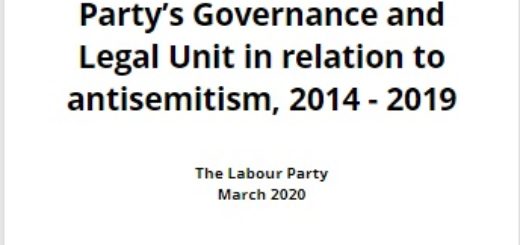 Moscow has offered to help Britain build nuclear power stations in partnership with Rolls-Royce, Russia’s deputy prime minister Igor Shuvalov has said. Mr Shuvalov, who met Vince Cable in London on Monday for bilateral trade talks, said he had talked to the Business Secretary about ways in which Russia could help build plants. “We discussed joint cooperation in some areas, including the construction of nuclear power plants,” said Mr Shuvalov after the talks. “The Russian side is interested in such construction and commissioning of new plants here in Great Britain in cooperation with Rolls-Royce.” Last year Rolls-Royce, which has a specialist nuclear division, signed a memorandum of understanding with Russian state-owned atomic energy corporation Rosatom to work together on potential new projects, The Telegraph writes.
Moscow has offered to help Britain build nuclear power stations in partnership with Rolls-Royce, Russia’s deputy prime minister Igor Shuvalov has said. Mr Shuvalov, who met Vince Cable in London on Monday for bilateral trade talks, said he had talked to the Business Secretary about ways in which Russia could help build plants. “We discussed joint cooperation in some areas, including the construction of nuclear power plants,” said Mr Shuvalov after the talks. “The Russian side is interested in such construction and commissioning of new plants here in Great Britain in cooperation with Rolls-Royce.” Last year Rolls-Royce, which has a specialist nuclear division, signed a memorandum of understanding with Russian state-owned atomic energy corporation Rosatom to work together on potential new projects, The Telegraph writes.
German calls for the EU to gain the power to veto national budgets won support yesterday from Mario Draghi, the President of the European Central Bank, who warned that steps taken so far to save the euro were “not enough”. The Italian ECB chief spoke out as Wolfgang Schaeuble, the German Finance Minister, told an audience in Oxford that only closer political and economic integration could rescue the EU from its woes. Mr Draghi had his own answer to those nations worried about losing sovereignty to Brussels or Frankfurt — their irresponsible borrowing had already seen them forfeit fiscal sovereignty to the markets. “If we want to restore confidence in the Eurozone, countries will have to transfer part of their sovereignty to the European level,” Mr Draghi told Der Spiegel magazine in a call for closer European integration, according to The Times.
Barclays will become the first bank to stand trial in the High Court over the effects of its manipulation of the Libor interest rate, in a landmark case that could open the way for a fresh wave of claims. A Wolverhampton-based chain of care homes is suing the bank over £70m worth of “swaps” they bought in 2007, which were designed to protect businesses against interest rate spikes. As part of its claim, Guardian Care Homes says that the bank deliberately sold a product that depended on the Libor benchmark, at the same time that senior management knew they were lying about the bank’s daily submission. The group, which owns 27 care homes, is suing Barclays for up to £37m. In a withering judgment, Mr Justice Flaux said that it was a legitimate issue to go to trial in a full hearing next year, The Times explains.
Francois Hollande will travel to Berlin with leaders for crisis talks on Tuesday after Germany said a Greek sovereign debt restructuring was “out of the question”. On Monday, the French president met with Jim Yong Kim, head of the World Bank, and IMF chief Christine Lagarde, as well as leaders of the World Trade Organisation and the OECD, to discuss solutions for Greece, including a debt buy-back. The group will talk about the ideas with Ms Merkel on Tuesday. European markets dropped ahead of the pivotal talks amid worsening bank problems gripped both Greece and Spain. Greek banks plunged almost 16% after the finance ministry in Athens said that Brussels’ bail-out fund would not recapitalise the banks. The collapsed dragged the Athens exchange down 6.3%, The Telegraph says.
The Treasury has been accused of hobbling the work of the Parliamentary Commission on Banking Standards, which is examining bank reform, by withholding details about how the Government intends to proceed. A souring of relations could prove troublesome for George Osborne if the commission decides when it reports at the end of the year to challenge his plans to overhaul the regulation of banks. The parliamentary commission on banking, chaired by Andrew Tyrie, has been asked by the Chancellor to examine the legislation to erect a ring-fence between retail banks and their more risky investment counterparts. However, the key details of the plan, covering issues such as whether derivative products can be sold by retail banks, will not be set out until secondary legislation is published next year, after the parliamentary commission has reported, The Telegraph says.
The dividend bonanza at telecoms giant Vodafone is set to fizzle out next spring in a move that will have major implications for pension savers across the UK. The company set a generous dividend policy in May 2010 that is coming to an end in the spring of next year. Sources say that although it has performed well, it cannot sustain payouts at their current level. Vodafone, which currently has a dividend yield of more than 5%, is one of the biggest cash dividend payers in the FTSE 100. Pension funds have become increasingly reliant on income from the telecoms group after the payout from BP, formerly the biggest payer in the Footsie, was hit by the Gulf disaster. The board, led by chief executive Vittorio Colao, is thought likely to freeze or cut the divi, The Daily Mail says.








